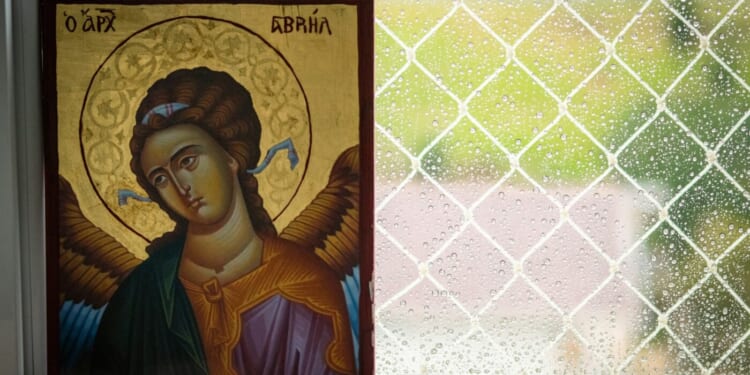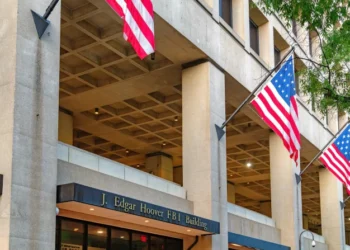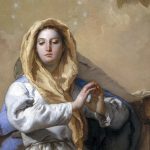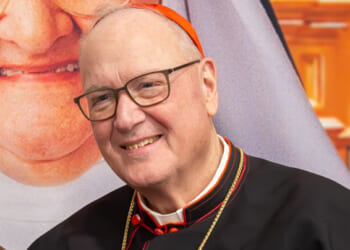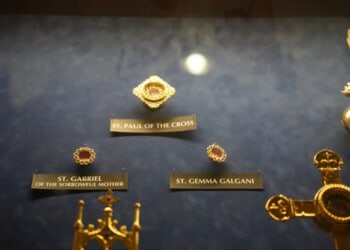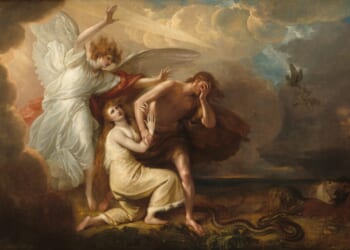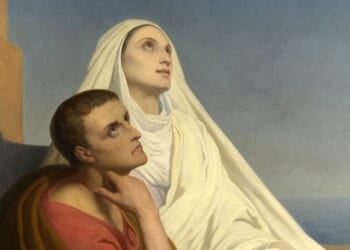Every year on September 29, Catholics around the world celebrate the Feast of the Archangels—a liturgical solemnity that honors three powerful figures in salvation history: Michael, Gabriel, and Raphael. Each is named in sacred Scripture and entrusted with a unique mission from God. Michael defends against the forces of evil, Gabriel delivers divine messages, and Raphael brings healing and guidance. Together, they represent the heavenly realm acting directly in the temporal world, always at the service of God’s will.
Yet around this feast, a common question often arises—particularly among Catholics encountering art, literature, or traditions from other Christian branches: What about Uriel? Who is he, and why isn’t he recognized as one of the archangels in Catholic traditions and devotion?
Though some traditions outside the Catholic Church name Uriel as a fourth archangel, the Catholic Church has consistently chosen not to include him in its liturgy or official theology. Understanding why requires a careful look at the Church’s relationship to Sacred Scripture, its discernment of authentic tradition, and its commitment to doctrinal integrity throughout history.
The Origins of Uriel
The name Uriel means “God is my light,” and references to this angel appear not in the canonical Scriptures, but in apocryphal and pseudepigraphal texts—writings that were influential in some early Jewish and Christian circles but were ultimately not included in the Bible as recognized by the Catholic Church.
The most prominent mention of Uriel is found in the Book of Enoch, an ancient Jewish text that presents a highly detailed angelology, including the names of several other archangels. Uriel is depicted as one of the chief angels who stands before the throne of God and carries out tasks ranging from guiding souls to interpreting divine mysteries. Another key mention is found in 2 Esdras (also known as 4 Ezra), an apocalyptic text where Uriel is sent by God to answer the prophet Ezra’s difficult theological questions.
However, neither the Book of Enoch nor 2 Esdras is included in the Catholic canon of Sacred Scripture. The Book of Enoch was considered valuable by some early Church Fathers, but its speculative cosmology and esoteric content raised theological concerns. While 2 Esdras was included in some editions of the Latin Vulgate and retained in the appendix of certain Bibles, it was ultimately not recognized as divinely inspired by the Church in its definitive teaching on the canon.
As a result, Uriel never received the same theological weight or liturgical recognition as the three archangels named in Scripture.
Why the Church Limits the Angelic Names
The Church’s caution regarding the veneration of angels outside those named in Scripture is not simply a matter of preference; it is rooted in a deep theological and pastoral concern. In the early centuries of Christianity, there was a growing interest in angelology, fueled in part by apocalyptic literature and gnostic movements. Many Christians became fascinated with naming and categorizing the angels, sometimes drifting into speculative or esoteric beliefs that veered dangerously close to superstition or heresy.
In response to these trends, the Church began to draw boundaries around the naming and veneration of angels. The most significant intervention came in the 8th century, when Pope Zachary, during the Roman Synod of 745, explicitly forbade the public veneration of any angels other than those named in canonical Scripture—namely, Michael, Gabriel, and Raphael. This decree was not meant to deny the existence of other angels, but rather to protect the faithful from confusion, doctrinal error, and the potential for idolatrous devotion.
This remains the official position of the Catholic Church to this day. Though artistic and literary representations may include Uriel and other named angels, the Church’s public prayer, liturgy, and catechesis limit recognition to the three archangels found in Scripture.
Scripture and Authority
At the heart of this question lies a central principle of Catholic theology: the primacy of Sacred Scripture as interpreted by the Magisterium. The Church teaches that divine revelation is transmitted through both Scripture and Tradition, but these are not free-floating sources. The interpretation and application of both are entrusted to the teaching authority of the Church, guided by the Holy Spirit.
Thus, when it comes to angels, the Church does not leave room for private speculation to override the clear boundaries laid out in the Bible and reaffirmed by the Magisterium. Although Uriel appears in certain non-canonical texts, the fact that he is not found in the inspired Scriptures recognized by the Catholic Church means that he does not share the same theological standing—and certainly liturgical standing—as Michael, Gabriel, or Raphael.
Moreover, Catholic theology always exercises caution when it comes to naming or venerating spiritual beings. Naming carries significance. To invoke an angel by name in prayer or devotion is to assume a particular familiarity and relationship. The Church teaches that such naming should be based on what God Himself has revealed, not on human imagination, literary tradition, or mystical speculation. Even in the case of guardian angels, Catholics are discouraged from the practice of creating names.
About the Archangels We Do Celebrate
As we celebrate the Feast of the Archangels, the Church invites us not to speculate about heavenly beings we do not know, but to reflect deeply on the ones we do. Michael reminds us that evil is real—and that God fights for us. Gabriel announces God’s saving plan and reminds us to listen attentively to His word. Raphael points to God’s healing presence in the most ordinary and hidden moments of life. Each of these, it is not hard to piece together, play a massively significant role in our salvation and as a countenance of God’s will for each of us to be sanctified and protected from evil.
These are not just distant celestial beings. They are part of the Church’s living faith. They are remembered in Scripture, invoked in the liturgy, and offered to us as models and companions on our spiritual journey. Thus, we celebrate them, and we should do all that we are able to make this liturgical feast one of enormous thanksgiving and joy.
Uriel’s name, “God is my light,” expresses a beautiful and theologically rich truth. But the Church, in her wisdom, reminds us that not all spiritual light is divine light, and not every name offered in pious tradition reflects the fullness of revealed truth. In a world eager for spiritual experiences and hungry for the mystical, the Church’s discernment in these matters is not restrictive, but liberating. It points us to what is sure, what is trustworthy, and ultimately, to what leads us most clearly to Christ.
Photo by Mateus Campos Felipe on Unsplash

